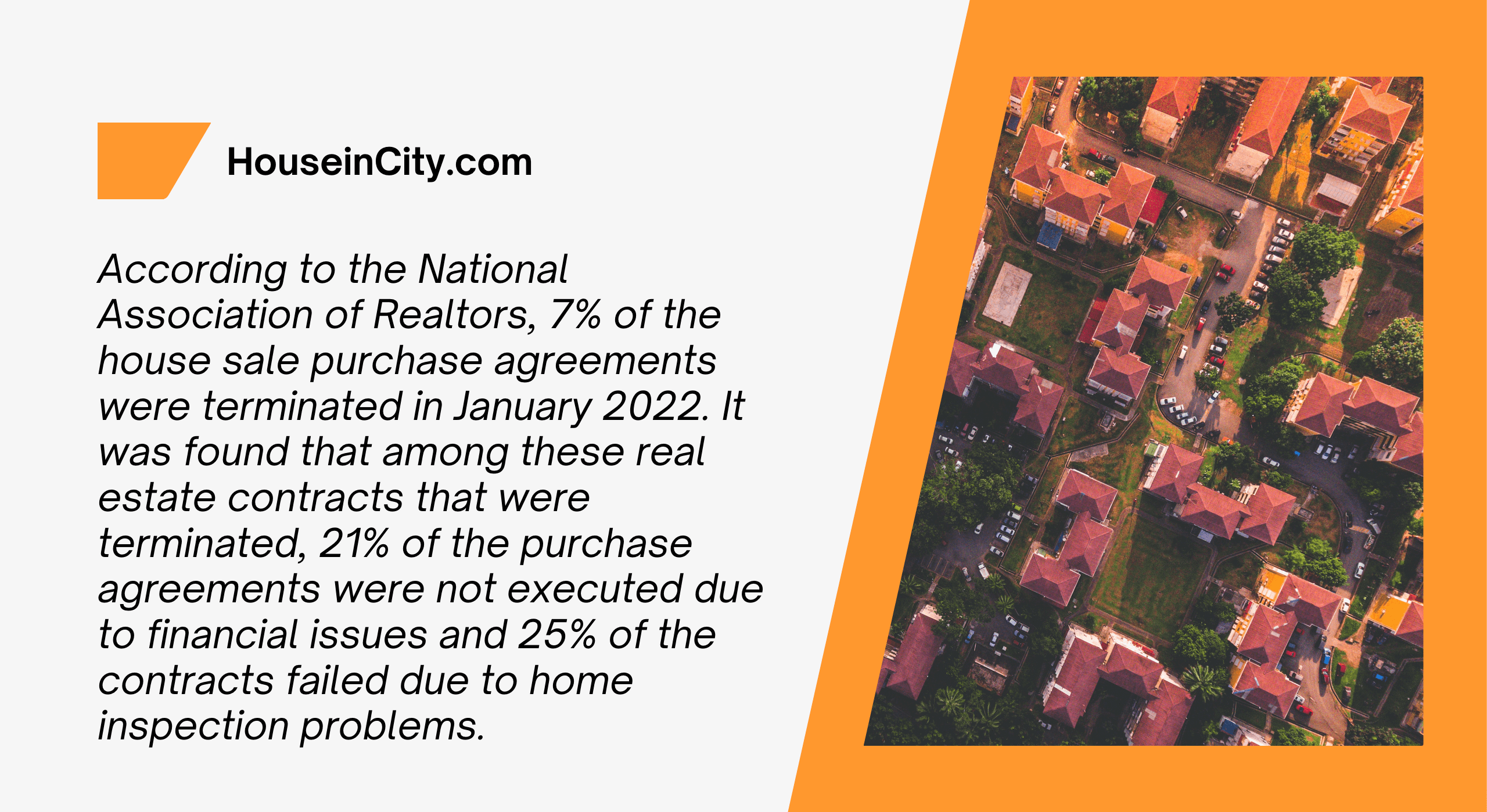What does contingent mean when it comes to buying your dream house? Let’s dive in deeper to find contingent meaning in real estate and how you can use them for your best interest.
Searching for a house on sale in the competitive real estate market can be exciting and challenging for most home buyers. While real estate investments are one of the best ways to increase your wealth, real estate transactions are not free from uncertainties.
As the purchase includes huge investments involved with many parties, you need to protect yourself from such unforeseen happenings. You might have come across the term real estate contingent during your house hunting journey. But what does contingent mean in real estate contingent house sales?
In contingent real estate, the seller accepts the buyer’s specific requirements to be met to close the home sale. If the buyer cannot meet the contingencies, they can back out of the agreement without losing any money. So, how do you look out for your best interest while purchasing a home?
Here we will help you figure out the best course of action essential to meet the contingent offer on your home.
Contingent House Meaning In Real Estate
When it comes to contingent meaning real estate house contingent, it refers to a house sale based on specific circumstances. When a real estate house is listed as contingent in the market, it indicates that the seller has agreed with the prospective buyer to sell the property. But, before the deal is finalized, one or more additional criteria must be met.
In other words, the term definition of contingent in real estate means the seller has agreed to the requirements set by the buyer and accepted the offer. In order for the home sale to be complete and final, the specified conditions must be met.
Failure to meet the contingency indicates the listing is still active in the real estate market. Once the conditions are met, the status becomes ‘pending’ till the final paperwork is complete. The seller must be aware that the buyer can cancel the agreement until the very last day before the closure of the home sale.
The contract enables the buyer to get their deposited money back in most cases. This comes as an added risk for the seller, which can be avoided by placing a contingency clause. These contingency clauses are mentioned in the sales contract and include matters related to home inspection, mortgage approval, appraisal, and much more.
Need For Real Estate Contingent Clauses
Contingency clauses are included in the sales contract so that the prospective buyers can back out from the agreement if anything goes wrong without losing their deposits. Contingencies also allow the parties involved in the real estate transaction to maneuver through any hiccups that need to be resolved before the sale can move forward.
In most cases, contingency clauses are used to guarantee:
- The house’s actual price.
- The house’s condition.
- If they plan to apply for a mortgage, the prospective buyer’s financial stability.
In a contingent home, meaning contingent real estate contract, contingent clauses lay out the specific actions or requirements that need to be met within the stipulated period. For example, the binding sales contract mentions, “The homebuyer has one week to inspect the entire property.” In this case, the home inspection must be completed within the specified timeframe.
In case the contingency clauses are not met within the stipulated deadline, either one or both parties involved can terminate the house sale agreement. This creates a golden opportunity for other potential buyers to jump in and purchase the property.
Common Real Estate Contingencies
As a home buyer, including a contingency clause in your home sale offer, will protect you from the possible risks associated with purchasing a real estate property. For example, you accept a house sale offer, and the house inspector finds the property has foundational issues. Here, you can use the house inspection contingency clause to cancel the contract and get your money back.
That’s why most sellers prefer to accept an agreement with no contingency clauses. For buyers, if you back out of the contract due to unforeseen circumstances, the lack of a contingency escape clause might cause you to lose your deposits offered to seal the contract.
However, contingency clauses add a level of complexity to the deal where there is a greater risk of the home purchases falling through. Including contingency clauses in a hot real estate market where numerous lucrative purchasing activities take place can be risky. This is why sellers need judicial contingencies to make an attractive offer. Here are some common contingencies used in real estate:
- Home Valuation Contingency
A home examination contingency is important for buyers in a real estate contract as it guarantees the property does not have any major problems. This opens the grounds for negotiating a better sales price. Since deals are mostly based on good faith, you might be tempted to skip the home inspection. However, including the home inspection contingency clause in the contract will allow you to waive the contract in case of any major findings.
The home inspection contingency permits the potential buyer to hire professional home inspectors to inspect the property thoroughly and negotiate the repair costs. In some cases, buyers can also inspect further to check for environmental concerns and pests like rodents and termites. If the inspection spells out serious flaws in the house, the buyer can back off completely from the deal based on the findings.
In short, having a home inspection contingency in the real estate agreement adds protection to the home buyer’s rights. Furthermore, this enables the buyers to negotiate a better deal with the home inspection report.
- Mortgage Contingency
You found the ideal property but do not have the cash in hand to close the deal. This is when you will have to take out a mortgage to purchase the property. While applying, you will need time to get the documentation and the appraisal done. This is when a mortgage contingency, is otherwise referred as financial contingency, comes in handy in the real estate contract.
The mortgage contingency clause gives the prospective buyer a certain amount of time to build up the financing to pay for the property purchase while proceeding with the contract. With the financing contingency in place, if the buyer is not able to line up the financing within the closing date, they can waive the contract without losing their money deposits.
Due to the pandemic, around 87% of the real estate purchases took place with a mortgage contingency attached in 2021. With people slowly reeling back financially from the global pandemic’s slump, this clause offers ample time for homebuyers to secure the finances needed to purchase their dream property.
- Appraisal Contingency
The appraisal contingency is applicable only if the real estate contract is attached with a financing contingency. To purchase a property with a mortgage attached, you will need to get an appraisal done.
Turns out that to approve the mortgage, the lender usually needs an appraisal where the value of the property is evaluated based on the sale value of similar properties in the area. This value is significant as it enables the lenders to analyze if the property value will cover the loan amount in case of any default in paying the mortgage.
For appraisal contingency, the mortgage lender can hire a certified appraiser to evaluate the house for sale and provide an unbiased opinion concerning the property’s actual worth. In case the appraisal value is much lower than expected, you can back out from the contract and avoid losing your deposits offered to sign the house sale agreement.
Keep in mind a home appraisal is not equivalent to a thorough home inspection. However, the property is considered safe to move in and ready to occupy.
Contingent vs. Pending Status
While searching for the perfect home online, you will notice some listings have more than just ‘for sale’ next to their price tag. While some homes are listed as ‘contingent,’ others have a status that says ‘pending.’ Yet others provide more details such as ‘contingent continue to show’ or ‘contingent no kick-outs.’ All these details inform the prospective buyer that these homes have reached a certain stage in the selling process.
To make the property sale process easier, you need to determine the differences between contingent and pending. In this manner, you will be able to seamlessly proceed if you’re planning to bid on any one of the houses.
- Contingent Home Meaning:
Still wondering, what does contingency mean in real estate contracts? In contingent listings, the seller has accepted the real estate offer with certain conditions to be met by the buyer.
Here, the real estate contingent deals remain as active listings as they are liable to fall out of the contract if the established conditions are not met. That’s why it’s essential to understand the terms in the house sales contract before you sign it, especially if a contingency clause is included in the agreement.
If everything goes smooth and the requested provisions are met, the contingent house deals will proceed to the ‘pending’ status. Keep in mind sellers can accept other house sale offers only if the current contingent offer gets cancelled.
- Pending Status Explained:
The pending listing implies you are very near to closing the real estate deal. The pending status indicates the stipulated conditions have been met and any possible issues have been resolved, which means the contract is almost made.
At this stage, you need not worry, as the real estate contingent property is almost yours! All parties involved are waiting for the final paperwork and documentation to be done to move the house selling process to close. During the pending listing, you will notice that most sellers will not show the property in the market, as the contingency clauses have been met and the contract cannot accept new offers.
Do Contingent House Offers Often Fall Through?
It is not easy to predict anything when it comes to the real estate market. This is why it is difficult to pinpoint how many contingent real estate contracts fall through each year.
According to the National Association of Realtors, 7% of the house sale purchase agreements were terminated in January 2022. It was found that among these real estate contracts that were terminated, 21% of the purchase agreements were not executed due to financial issues and 25% of the contracts failed due to home inspection problems.
Compared to the pre-Covid market, terminated real estate agreements are becoming common in the current market scenario. One of the basic reasons is that interest rates have been hitting historic lows due to the global pandemic in the past two years. During this time of dip, numerous banking institutions and lenders issued pre-approval letters without conducting any upfront due diligence.
These approvals for home purchase agreements created numerous issues with home buyers who entered into real estate deals. Lenders could not approve the loan amount even after completing due diligence. This resulted in most contingent house purchase contracts falling through without closure.
Final Verdict
As a prospective buyer, if a home for sale has a contingency clause, it doesn’t mean you’ve lost all hope. Since different states have different laws, you will have to connect with your local real estate agent to find out the current local rules for contingent real estate homes.
In the real estate market, unexpected things happen where houses under contract may not reach home sale closure. In such cases, the contingency clause protects the home buyer and, at times, the seller when the parties involved decide to terminate the contract.
By figuring out the conditions set as contingent, meaning house contingent in real estate, you will be able to decide on the best course of action you need to undertake if you are interested in moving forward with a particular property.
While you may find yourself caught up in the excitement of finding the perfect property with all the best deals, create a contingent real estate contract that ensures a win-win situation for all parties involved.



